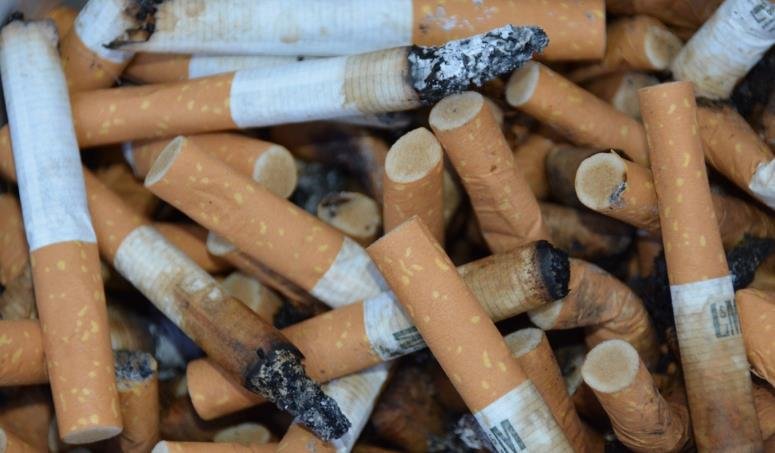The Council on Chemical Abuse (COCA), a nonprofit organization that provides prevention, intervention, and treatment services for substance abuse in Berks County, has launched a new program to help teens quit vaping. The program, called ‘Escape the Vape’, is a partnership between COCA, local schools, and health care providers, to offer education, counseling, and nicotine replacement therapy to students who want to stop using e-cigarettes.
The program, which was announced on March 7, 2024, is an expansion of COCA’s existing ‘Escape the Vape’ campaign, which started in 2022 as a public awareness initiative to inform the community about the dangers and the consequences of vaping. The campaign, which features billboards, posters, social media posts, and videos, aims to dispel the myths and the misconceptions about vaping, and to encourage teens to seek help if they are addicted to nicotine.

The program, which is funded by a grant from the Pennsylvania Department of Health, is designed to provide more direct and personalized support to teens who want to quit vaping. The program will work with schools to identify and refer students who are interested in quitting, and to provide them with free counseling sessions, either in person or online, with certified tobacco treatment specialists. The program will also work with health care providers to prescribe and provide nicotine replacement products, such as patches, gums, or lozenges, to students who need them.
The program aims to address the rising trend of youth vaping in Berks County and beyond
The program aims to address the rising trend of youth vaping in Berks County and beyond, which has been a growing public health concern in recent years. According to the 2023 Pennsylvania Youth Survey, 27.5% of Berks County students in grades 6, 8, 10, and 12 reported using e-cigarettes in the past 30 days, compared to 20.9% statewide and 19.6% nationally. The survey also found that 11.9% of Berks County students reported using e-cigarettes daily, compared to 8.7% statewide and 6.1% nationally.
The program also aims to address the potential health risks and harms of vaping, which are not fully understood or known. According to the Centers for Disease Control and Prevention (CDC), vaping can expose users to harmful chemicals and metals, which can damage the lungs, the heart, the brain, and the immune system. Vaping can also increase the risk of addiction, as most e-cigarettes contain nicotine, which is a highly addictive substance that can affect the development of the adolescent brain. Vaping can also increase the risk of using other tobacco products, such as cigarettes, cigars, or hookahs, or other substances, such as marijuana, alcohol, or opioids.
The program also aims to address the social and emotional factors that may influence teens to start or continue vaping, such as peer pressure, stress, anxiety, boredom, curiosity, or rebellion. The program will help teens to understand the reasons and the triggers behind their vaping behavior, and to develop coping skills and strategies to deal with them. The program will also help teens to set realistic and achievable goals, to monitor their progress, to celebrate their successes, and to overcome their challenges.
The program hopes to reach and help as many teens as possible to quit vaping
The program hopes to reach and help as many teens as possible to quit vaping, and to improve their health and well-being. The program will work with schools to promote and recruit students for the program, and to provide incentives and rewards for participation and completion. The program will also work with parents and guardians to inform and involve them in the process, and to provide them with resources and tips to support their children. The program will also work with the community to raise awareness and to reduce the stigma and the barriers associated with quitting vaping.
The program will measure and evaluate its outcomes and impacts, and will report them to the state and the public. The program will also seek feedback and input from the students, the schools, the health care providers, and the partners, to improve and enhance the program. The program will also seek additional funding and support to sustain and expand the program in the future.
Stanley Papademetriou, the executive director of COCA, said that the program was a response to the urgent and growing need to address the youth vaping epidemic, and that the program was a collaborative and comprehensive effort to help teens quit vaping.
“We are very excited and proud to launch this new program, which is a response to the urgent and growing need to address the youth vaping epidemic,” Papademetriou said. “This program is a collaborative and comprehensive effort to help teens quit vaping, by providing them with education, counseling, and nicotine replacement therapy, and by working with schools, health care providers, and the community. We hope that this program will reach and help as many teens as possible to quit vaping, and to improve their health and well-being.”
Jane Smith is a seasoned article writer specializing in cannabis-related content. With a keen focus on the latest trends, research, and developments in the cannabis industry, she brings a fresh perspective to her writing. Jane’s insightful articles delve into the medicinal benefits, legalization efforts, and evolving culture surrounding cannabis. Her engaging storytelling and informative approach make her a trusted source for readers seeking accurate and up-to-date information on all things cannabis.








